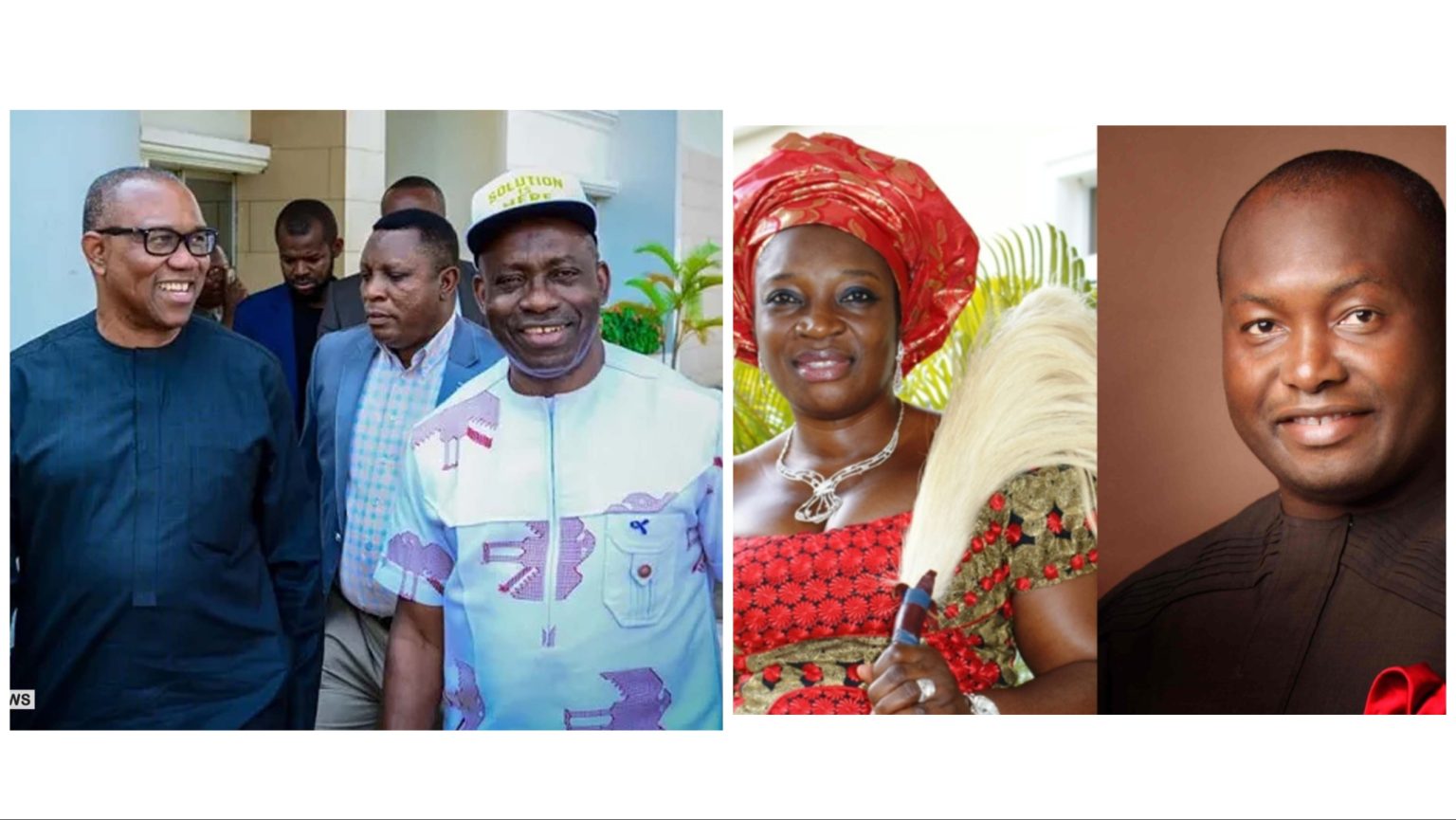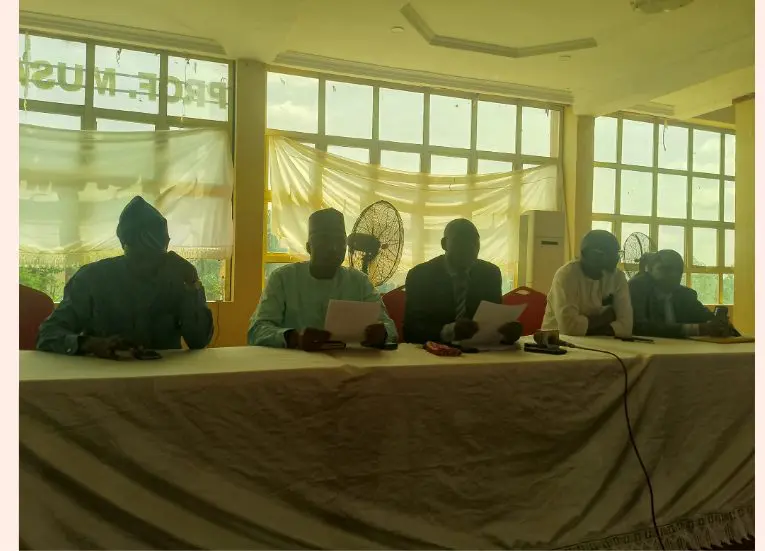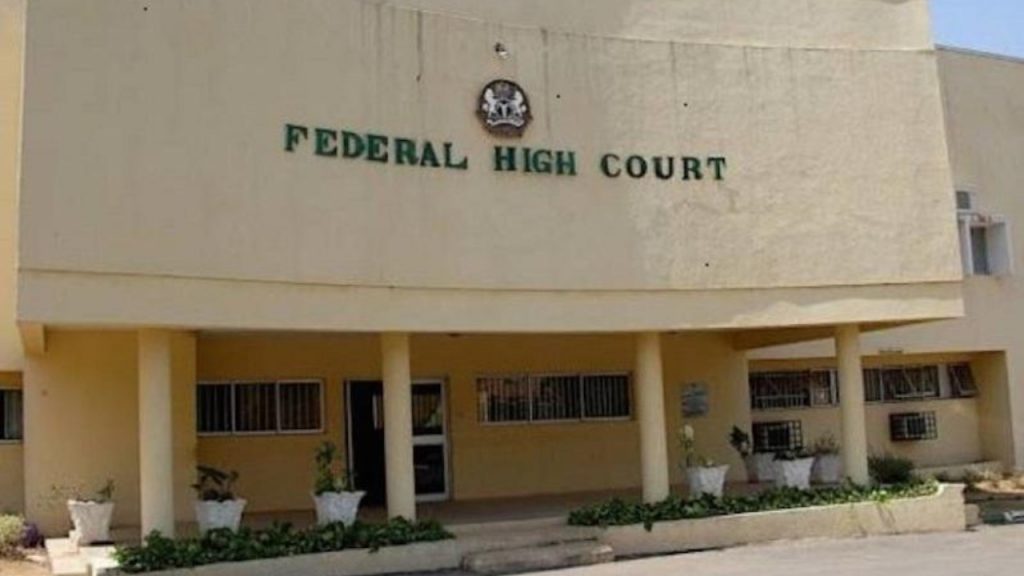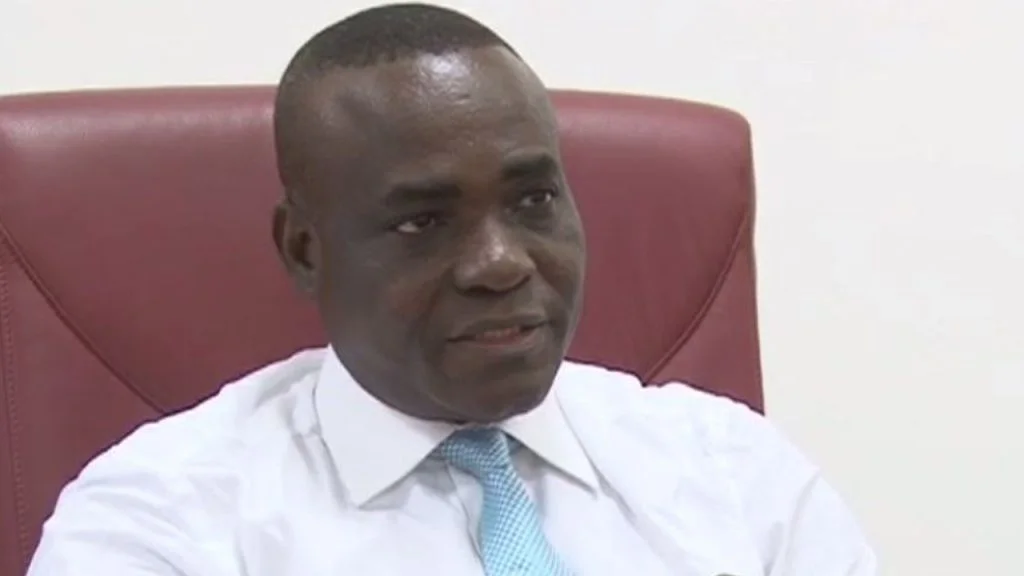News
How Soludo, Peter Obi, Ifeanyi Ubah, Ekwunife shaped Anambra politics in 2023

In the concluding year of 2023, the political landscape in Anambra was significantly shaped by a handful of key individuals and events. Noteworthy among these were the 2023 general elections, the presence of Mr. Peter Obi as the Labour Party’s Presidential candidate, and the governance of Anambra State by Prof Chukwuma Soludo, alongside other influential political figures.
Even as the year comes to an end, indicators persist that the political dynamics in Anambra are undergoing notable changes.
General Elections and the Role of Peter Obi:
The election held in November 2021 resulted in the choice of Prof Chukwuma Soludo as the governor of Anambra, and he was officially sworn in on March 29, 2022. With the focus typically on the election of State Chief Executives, Anambra might not have been the center of attention. However, the entry of former governor Mr. Peter Obi into the 2023 general elections as the Labour Party candidate altered this perspective. Despite not electing a governor, Anambra garnered attention due to the political activities spurred by Obi’s candidacy.
Given Obi’s reputation for effective governance and his widespread appeal, there was apprehension in Anambra that he might influence legislative positions, both at the national and state levels, potentially affecting Soludo’s influence. Although this scenario did not fully materialize, Obi’s influence did secure significant results, including the Labor Party winning eight seats in the state assembly. Soludo, sensing the potential dominance of LP lawmakers, swiftly secured 17 seats out of 30 in the state assembly.
Allegations later arose, accusing Soludo of extravagant spending, amounting to N3.5 billion, during the House of Assembly elections, suggesting vote-buying tactics to secure APGA’s victory.
The Soludo Factor:
In 2023, Soludo emerged as a prominent force in Anambra politics, despite being associated with APGA. Notably, he expressed support for the Peoples Democratic Party (PDP) presidential candidate, Alhaji Atiku Abubakar, in contrast to his party’s nominee, Prof Peter Umeadi. Soludo’s open letter in November 2022, titled ‘History Beckons, I won’t be silent,’ was perceived by many as harboring animosity, causing polarization within the state’s political landscape.
Defections and APC’s Gains:
As the year concludes, the All Progressives Congress (APC) in Anambra has made notable gains, transitioning from being labeled a ‘Fulani party’ to gaining acceptance. While traditionally struggling in elections, the APC has capitalized on defections, with Senators Ifeanyi Ubah and Uche Ekwunife among the recent defectors. The party now anticipates significant success in 2025, buoyed by unity and the inclusion of influential politicians.
PDP’s Decline in Anambra:
The once-dominant People’s Democratic Party (PDP) in Anambra has seen a sharp decline, bordering on extinction. Legal disputes have left the party without leadership in the state, and prominent figures are defecting to other political entities, marking a significant shift in the state’s political landscape.
News
Nigeria s 1999 Constitution full of flaws – Muslim lawyers association

The Muslim Lawyers Association of Nigeria, MULAN, has declared that there are many defects and flaws in the current 1999 Constitution of the Federal Republic of Nigeria.
MULAN National President, Dr Kazeem Olajide Olaniyan, made this declaration while addressing a press conference to herald the 15th annual general conference of the association on Thursday in Ibadan, the Oyo State capital.
Olaniyan stressed that Nigeria needs a homegrown Constitution that will address the current challenges facing the country.

According to him, the 1999 Constitution was drafted during the military rule and has many defects and flaws.
He noted that a homegrown will address the current problems the country is facing.
Olaniyan while speaking further, maintained that the theme of the conference, ‘National Development: The new dynamics and nuances’, was chosen so as to provide solutions to the country’s problems.
He also used the medium to appeal to the government to address the issue of fuel scarcity, food crisis and inflation in the country.
“Any Constitution Nigeria must have must be homegrown. What we have now was drafted by the military.
“There are so many defects and flaws in the 1999 constitution.
“Removal of subsidy of petroleum has effect on all of us coupled with inflation. We are now experiencing fuel scarcity.
“As we speak, if we are blaming the government, there are so many things we as people are also causing. We are also calling on the government to address the problem of food insecurity.”
News
Court adjourns trial in Nigerian Govt versus Ali Bello, others to May 27

Senator Ita Enang, former Special Adviser to the President on National Assembly Matters, attributed the failure of the Nigerian economy, the escalating debt burden, and the depreciation of the national currency, the naira, to the National Assembly. Enang made these remarks during the public unveiling of Oversight Magazine, a publication dedicated to covering parliamentary events, by former House of Representatives member Aniekan Umannah.
Enang asserted that the National Assembly’s inability to pose pertinent inquiries was accountable for the economic challenges. Having chaired both the House and Senate Committees on Rules and Business, Enang criticized the chambers for never releasing reports on their oversight duties as required, nor for questioning the nation’s debt.
He highlighted that while lawmakers frequently conduct oversight visits to scrutinize the activities of Ministries, Departments, and Agencies, they neglect to present their findings for deliberation on the parliamentary floor. According to him, the executive’s suboptimal performance, at both state and national levels, can be attributed to the deficient oversight of the National Assembly and state Houses of Assembly nationwide.
Enang emphasized the importance of the oversight function, stating that it allows for monitoring the utilization of budget allocations, assessing project progress, and planning future budgets accordingly. He concluded that the failure of the Nigerian economy, the devaluation of the naira, and the excessive debt accumulation are ultimately the responsibility of the National Assembly.
News
NASS responsible for failure of Nigeria’s economy, rising debt – Ita Enang

Senator Ita Enang, former Special Adviser to the President on National Assembly Matters, attributed the failure of the Nigerian economy, the escalating debt burden, and the depreciation of the national currency, the naira, to the National Assembly. Enang made these remarks during the public unveiling of Oversight Magazine, a publication dedicated to covering parliamentary events, by former House of Representatives member Aniekan Umannah.
Enang asserted that the National Assembly’s inability to pose pertinent inquiries was accountable for the economic challenges. Having chaired both the House and Senate Committees on Rules and Business, Enang criticized the chambers for never releasing reports on their oversight duties as required, nor for questioning the nation’s debt.
He highlighted that while lawmakers frequently conduct oversight visits to scrutinize the activities of Ministries, Departments, and Agencies, they neglect to present their findings for deliberation on the parliamentary floor. According to him, the executive’s suboptimal performance, at both state and national levels, can be attributed to the deficient oversight of the National Assembly and state Houses of Assembly nationwide.
Enang emphasized the importance of the oversight function, stating that it allows for monitoring the utilization of budget allocations, assessing project progress, and planning future budgets accordingly. He concluded that the failure of the Nigerian economy, the devaluation of the naira, and the excessive debt accumulation are ultimately the responsibility of the National Assembly.
-

 World News7 months ago
World News7 months agoWhat we know about Israel’s war with Hamas
-

 Sports7 months ago
Sports7 months agoLaLiga: Everyone want to play with him – Vinicius on player Real Madrid should sign
-

 World News7 months ago
World News7 months agoIran calls on Islamic, Arab countries to confront Israel
-

 Tech7 months ago
Tech7 months agoTop 10 AI Skills to Learn in 2023
-

 Entertainment7 months ago
Entertainment7 months agoBET Hip-Hop Awards: Black Sherif wins big as Burna Boy loses seven nominations
-

 Entertainment7 months ago
Entertainment7 months ago‘Black Panther’ star Lupita Nyong’o breaks up with boyfriend, Selema Masekela
-

 ICT8 months ago
ICT8 months agoApple Bows To EU, Unveils iPhone With USB-C Charger
-

 World News7 months ago
World News7 months agoZelensky seeks defences for winter on visit to NATO














